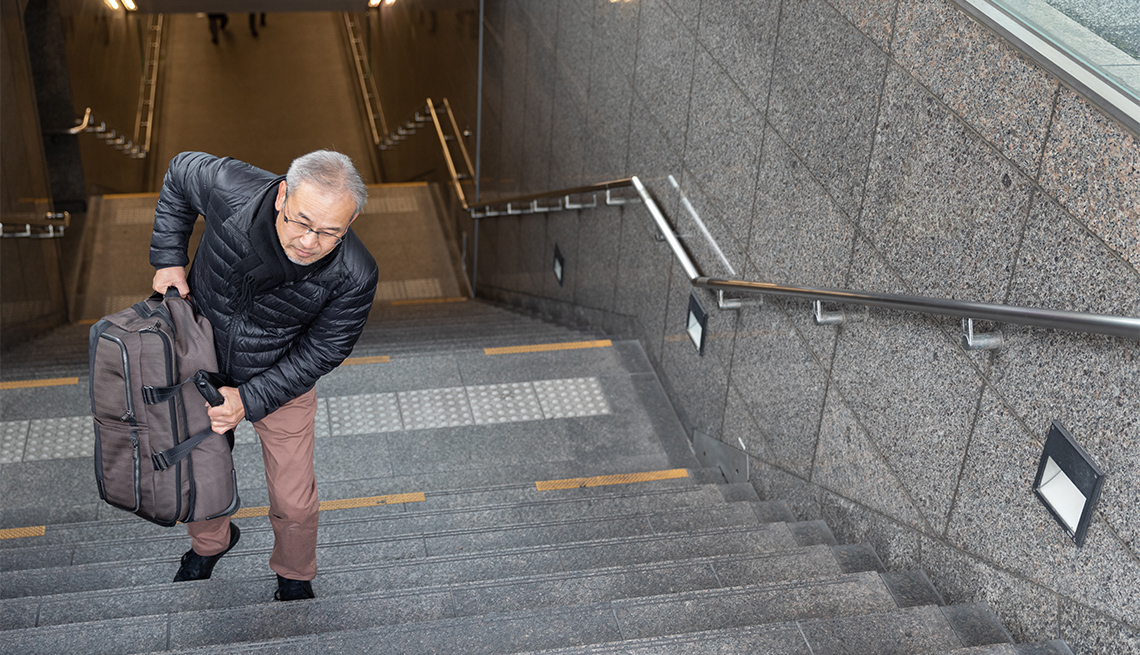
- Select a language for the TTS:
- UK English Female
- UK English Male
- US English Female
- US English Male
- Australian Female
- Australian Male
- Language selected: (auto detect) - EN
Play all audios:
This past summer I traveled to London and then to Scotland to attend my daughter’s college graduation. It was a jam-packed two days of garden parties, family dinners and cocktail hours
following the commencement ceremony. On the day I traveled back to London, a shortage of taxis forced me to wheel my large suitcase and carry-on bag about a mile over cobblestones to the
train station — my purse and shopping bag slung over my shoulder. In Edinburgh, I carried my bags up a flight of stairs in order to make my connection, and at Heathrow airport there was
walking and moving my bags through a security line for more than an hour. Once seated on the plane, I suddenly felt a sharp pain in my right elbow. Over the next week the pain got worse and
extended down my arm. I went to an orthopedist, who diagnosed tennis elbow. He surmised that dragging and carrying my heavy bags was the cause. The pain only lasted another week or so,
thanks to ice and stretching, but the whole experience left me wondering what other dangers might await me on my next trip. So I asked some experts. “I frequently hear stories like yours,”
says Sajida Saeed Chaudry, M.D., a primary care physician who specializes in preventive care at Johns Hopkins Community Physicians. She added that her patients, especially those age 50 and
over, tell her tales of getting lost while on vacation and having to walk for miles, causing foot injuries, or hurting their back by putting a heavy bag in an overhead compartment or taking
it off a conveyor belt. “There’s an element of stress and rushing, creating the perfect storm for things to go wrong,” Chaudry says. BEFORE YOU GO Chaudry has some simple tips to help
prevent injuries or health emergencies during travel, beginning with comfortable footwear. She also recommends establishing an exercise routine prior to traveling and ramping it up if you’re
planning on doing a lot of walking. “If you’re routinely walking and suddenly go from 5,000 to 20,000 steps, those extra steps won’t bother you as much,” Chaudry says. Another travel tip:
Pack extra must-have items in your carry-on bag. “I always tell patients, when they’re traveling, to have a back-up pair of glasses or hearing aids, and to keep them (close). Don’t put them
in checked luggage,” Chaudry says. “It’s also a good idea to have your medical history and list of medications handy.”







:max_bytes(150000):strip_icc():focal(959x478:961x480)/richard-robinson-2b722d0bdc5649a89c7c4d7142c3f818.jpg)